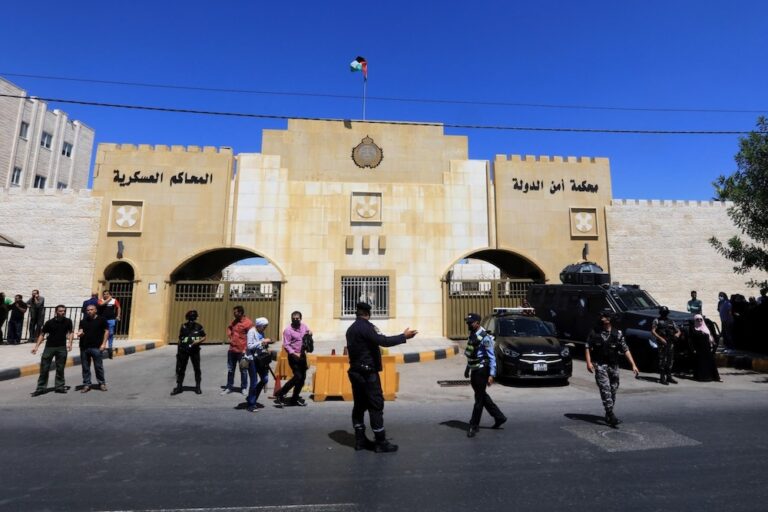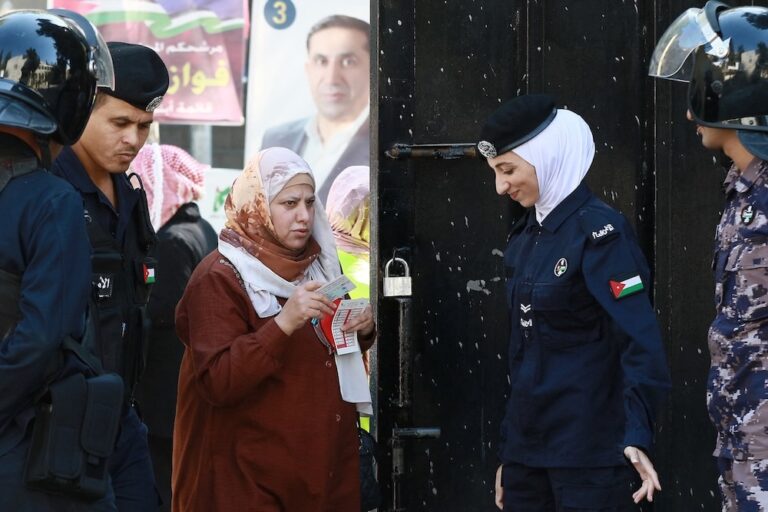(ARTICLE 19/IFEX) – The Jordanian Council of Ministers’ recent orders for several weekly newspapers to suspend publication bears out the urgent need for reform detailed in “Blaming the Press – Jordan’s Democratization Process in Crisis”. This new report from ARTICLE 19 challenges the Jordanian government’s claim to be the guarantor of its citizens’ human rights, […]
(ARTICLE 19/IFEX) – The Jordanian Council of Ministers’ recent
orders for several weekly newspapers to suspend publication bears
out the urgent need for reform detailed in “Blaming the Press –
Jordan’s Democratization Process in Crisis”. This new report from
ARTICLE 19 challenges the Jordanian government’s claim to be the
guarantor of its citizens’ human rights, given this May’s
amendments to the 1993 Law on Press and Publications (see IFEX
alerts). These changes attack freedom of expression and
constitute a major breach of both international law and Jordan’s
own Constitution.
Increasing internal criticism of the government’s domestic and
foreign policies has provoked a clamp-down on the small
independent media sector, the forum for stories on human rights
abuses, official corruption, mismanagement and debate over
controversial policies and social problems.
The impact on democracy and freedom of expression is already
tangible:
for the House of Representatives on 4 November, unless the
government meets certain conditions, including abandoning the May
1997 press law amendments. ARTICLE 19 recommends the immediate
repeal of these retrograde measures.
Council of Ministers, one weekly newspaper has been forced to
close and others to combine.
detentions and allegations that police physically abused
demonstrators, allegations denied by the Minister of Information.
ARTICLE 19 will be highlighting these issues with a seminar for
journalists and decision-makers in Jordan next week.
Said Essoulami, Head of ARTICLE 19’s Middle East Programme said:
“Accusing the independent press of bringing Jordan into
disrepute, introducing laws to stifle it and thus crushing debate
is a convenient way of offloading responsibility for the
political and economic problems Jordan is facing, and delaying
having to respond to them.
“ARTICLE 19 is concerned that the new amendments represent a real
set-back to government accountability, debate on matters of
public interest and respect for human rights. In a democratic
society, government officials must be able to tolerate being
scrutinised and criticised both by the public and the media,” he
added.
The press law amendments were ratified by Royal Decree, without
public or parliamentary debate, shortly after the King expressed
discontent with the weekly press. The chief claim made against
this small, privately-owned sector is that its reporting is
harmful to Jordan’s national interests.
ARTICLE 19’s recommendations for early reform in Jordan include:
1. Ensuring that the constitutional guarantee of freedom of
expression supersedes legislative restrictions, and establishing
a comprehensive access to information regime based on public
interest.
2. Exposing and stopping practices aimed at intimidating
journalists, including harassment through the courts.
3. Ending mandatory membership of the Jordanian Press
Association as a condition for being allowed to practise as a
journalist.
4. Ending censorship by the Department of Press and
Publications of books prior to printing and of imported
newspapers prior to distribution.
5. Reducing the government share ownership in the daily press
and ending the state monopoly over the broadcast media.
6. Abolishing the requirement for a minimum capital sum as a
pre-condition for setting up a newspaper.
7. Ending the use of defamation law to stifle criticism or
debate about issues which may be embarrassing for the government.


